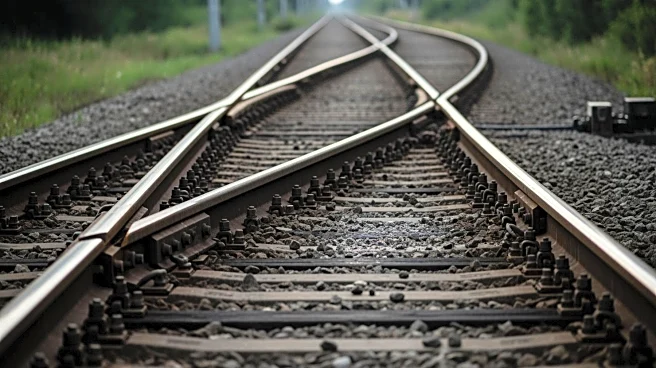What's Happening?
A collision between two trains near České Budějovice in the Czech Republic resulted in five people being seriously injured and dozens more sustaining minor injuries. The incident occurred when the R 658 express train collided with the Os 8053 passenger
train between Zliví and Dívčice stations during the morning rush hour. Czech Railways confirmed the involvement of its trains, and emergency services responded with seven rescue crews and a helicopter. An investigation has been launched to determine the cause of the collision, with inspectors examining potential human error, technical failure, or systemic issues. The railway line remains closed pending the investigation and cleanup operations.
Why It's Important?
The train collision highlights ongoing safety concerns within the railway systems in Central Europe. With recent incidents in Slovakia and Poland, the frequency of such accidents raises questions about the effectiveness of current safety protocols and infrastructure maintenance. The investigation's findings could lead to significant changes in railway operations and safety standards, impacting commuters and the broader transportation network. The incident also underscores the importance of rigorous safety checks and the need for improved communication systems to prevent future accidents.
What's Next?
Railway investigators are expected to complete their examination of the crash site and determine the cause of the collision. Depending on the findings, Czech Railways may implement new safety measures or protocols to prevent similar incidents. The closure of the railway line will continue until the investigation is concluded and cleanup operations are completed. Authorities may also review and update safety regulations across the region to enhance commuter safety and prevent future accidents.
Beyond the Headlines
The collision may prompt a broader discussion on railway safety and infrastructure investment in Central Europe. As countries in the region continue to modernize their transportation systems, ensuring the safety of passengers and the reliability of services will be crucial. The incident could lead to increased scrutiny of railway operations and push for technological advancements in train signaling and communication systems.















